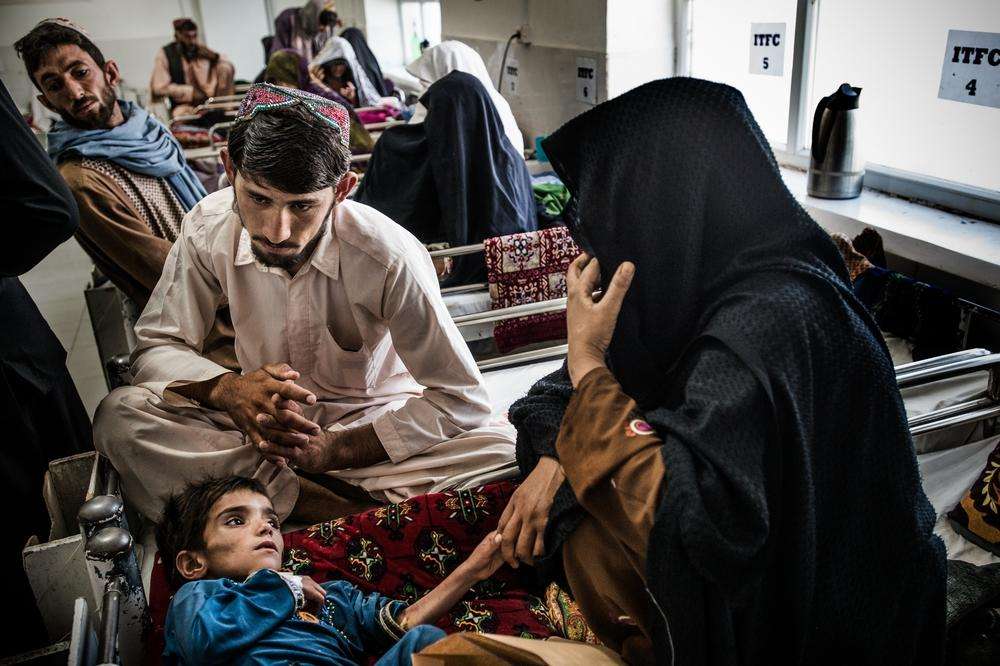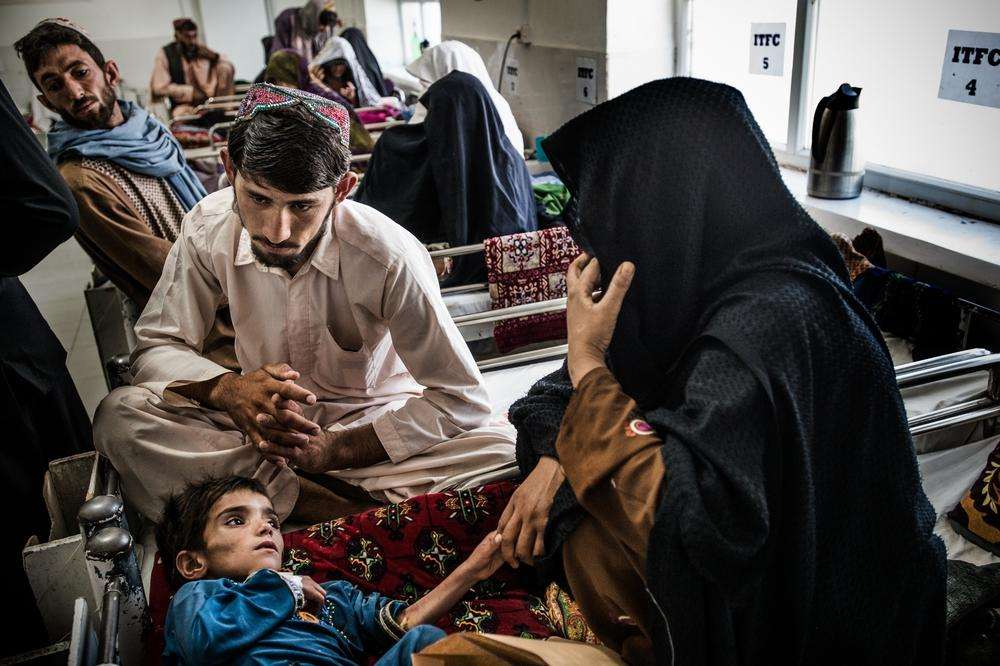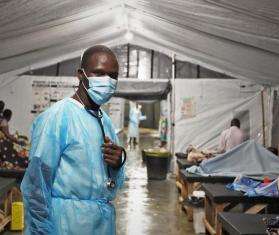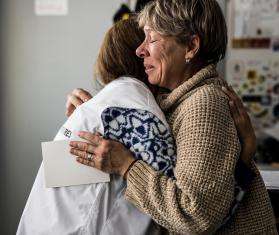The intensity of fighting has decreased in recent days in districts surrounding Lashkar Gah, the capital of Afghanistan’s Helmand Province, after heavy clashes between Afghan government forces and armed opposition groups at the beginning of August. Despite the relative calm, sick and wounded people are still struggling to reach the emergency room (ER) in Boost Hospital, a 300-bed facility run by Doctors Without Borders/Médecins Sans Frontières (MSF) in partnership with the Afghan Ministry of Health.
“Our patients have reported that roads are blocked and checkpoints are delaying them reaching the hospital,” said Guilhem Molinie, MSF’s country representative in Afghanistan. “As a result, we’ve seen a trend of quieter mornings in the ER, which is usually the busiest time, and more people arriving in the evening after facing delays getting here.”
Overall, the number of patients arriving at the ER has decreased since fighting escalated at the beginning of August.
“The Emergency Room is the main entry point for patients coming to the hospital so the fluctuating admissions are a direct reflection of the ebb and flow of the conflict and people’s ability to reach the hospital,” said Molinie. “As the only hospital able to provide secondary healthcare free of charge in the area, many patients have to travel from far away to get treatment for a range of lifesaving care, such as surgical interventions, and emergency obstetric and neonatal care.”
In other wards of the hospital—such as the intensive therapeutic feeding center (ITFC) and pediatric departments—doctors are starting to see the number of patients slowly return to normal.
Read: "Empty Beds are the Face of War"
Fighting is ongoing in the districts of Nad Ali, Marja, Geremshir and Nawa, surrounding Lahkar Gah, but the intensity has decreased. MSF has prepared a mass causality plan in case of a sudden influx of wounded due to the fighting, with materials stockpiled and triage protocols in place. MSF will continue treating people regardless of their political, ethnic, religious or any other affiliations.
“Our ability to continue providing medical care in Lashkar Gah depends on all warring parties respecting medical staff, facilities and patients,” said Molinie. “We are in contact with all parties to the conflict, including Afghan government forces, international forces, and the armed opposition, to obtain these assurances”.
MSF has shared the coordinates to the hospital and the information related to its facilities in Lashkar Gah with all parties to the conflict. MSF has a strict no weapons policy and all people entering its hospitals need to place their weapons in a safety locker.
“In order to protect our staff and patients we not only need people to know where we are located, but we also need their firm commitment to respect the fact that we work in a neutral and impartial way,” said Molinie. “We have to constantly reassess whether all parties fully accept us providing medical care to anyone who needs it, whether the fighting remains in the neighboring districts or reaches Lashkar Gah itself.”
MSF started working in Afghanistan in 1980. In Helmand, just as in the rest of Afghanistan, both national and international staff work together to ensure the best quality of treatment. MSF supports the Ministry of Public Health in Ahmad Shah Baba hospital in eastern Kabul, Dasht-e-Barchi maternity in western Kabul and Boost hospital in Lashkar Gah, Helmand province. In Khost, in the east of the country, MSF operates a maternity hospital. MSF plans to open a multi-drug resistant tuberculosis diagnosis and treatment facility in Kandahar later this year. MSF relies only on private funding for its work in Afghanistan and does not accept money from any government.





